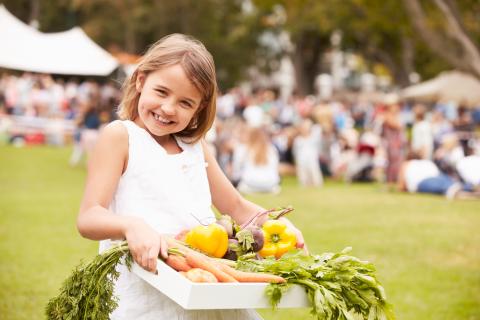European Economic
and Social Committee
From field to fork – working together for good food
From agricultural to food policy – Towards healthy and sustainable production and consumption - 21 April 2016, The Hague
Farmers, consumers, academics and policy-maker were among the wide range of participants at a Group III 'Various Interests" European Economic and Social Committee event in the Netherlands to examine the future of food production and consumption.
Sustainable food policy involves many elements: safeguarding the livelihoods of farmers and workers in the industry; promoting healthy eating – especially among children; protecting the environment and at the same time guaranteeing a supply of good-quality affordable food products.
The EESC’s ‘Various Interests’ group wanted to bring together as many different stakeholders as possible, to draw up recommendations for the Presidency of the EU Council.
In his introduction, group President Luca Jahier highlighted the lack of a comprehensive EU approach to food sustainability. “Globally, some 800 million people suffer chronic hunger; more than two billion people are malnourished,” he noted. “However, shockingly each year, 1.3 billion tonnes of food produced for human consumption is wasted or lost in the food supply chain. Change is needed, change is wanted and change is possible,” he insisted.
The event was partly inspired by a recent study by the Netherlands Scientific Council for Government Policy, entitled ‘Towards a food policy’, which called for investment in a resilient food system.
Presenting this study, Josta de Hoog stressed that production and consumption is interdependent, and called for ecological sustainability and health to be anchored in core policies.
The 100 or so participants agreed that governments, regional and local authorities have a key role to play in developing a comprehensive food policy, in cooperation with all the actors in the food chain, from farmers to retailers to consumers.
Stronger cooperation
The wide-ranging recommendations from the event call for more sustainable agricultural production to slow climate change and protect natural resources, and cover public health, education and awareness raising, research and innovation, supply chains and food safety.
“Healthy and sustainable food production and consumption should be an easy and affordable choice both for producers and consumers,” meeting delegates concluded.
Setting up an International Panel on Food and Nutrition Security would be a clear first step towards stronger cooperation and an interdisciplinary approach to policy-making. The European Commission could also adopt a more coherent strategy by establishing an inter-service task force to develop an EU food policy.
The recommendations include existing examples of good practice. The Dutch city of Ede, for example, developed a programme of inspiring, food-related events and projects focused around everything from science to entertainment, with partners including the local hospital, businesses and schools. Also in the Netherlands, the ‘flexitarian’ eating campaign encourages people to vary their diets and consume less meat.
As well as going to all EU institutions, the recommendations were designed to feed into an informal meeting of EU agriculture ministers called by the Dutch EU Presidency in May 2016, to launch a debate on the future of food and the Common Agricultural Policy after 2020. The Presidency has already asked the EESC to draw up an exploratory opinion on ‘More Sustainable Food Systems’, focusing mainly on the European context but also touching on external implications, as the EU is the largest exporter and importer of agricultural and food products worldwide.
More info:
